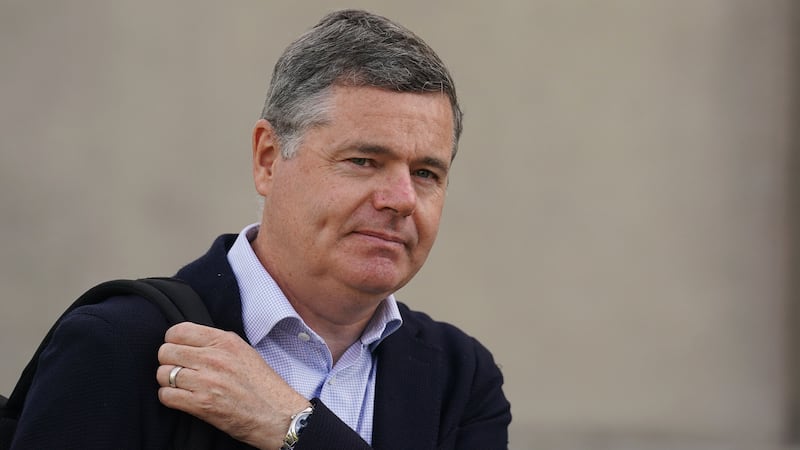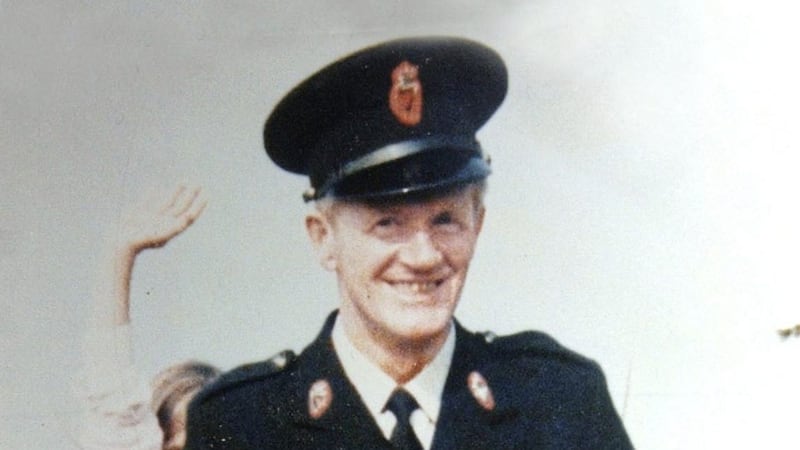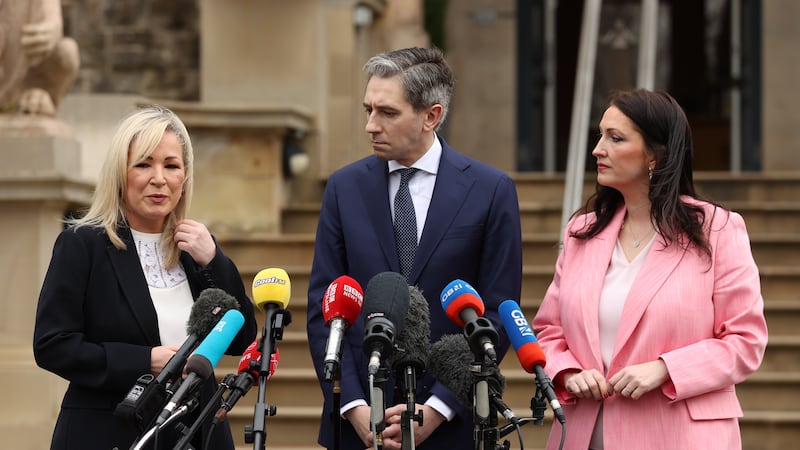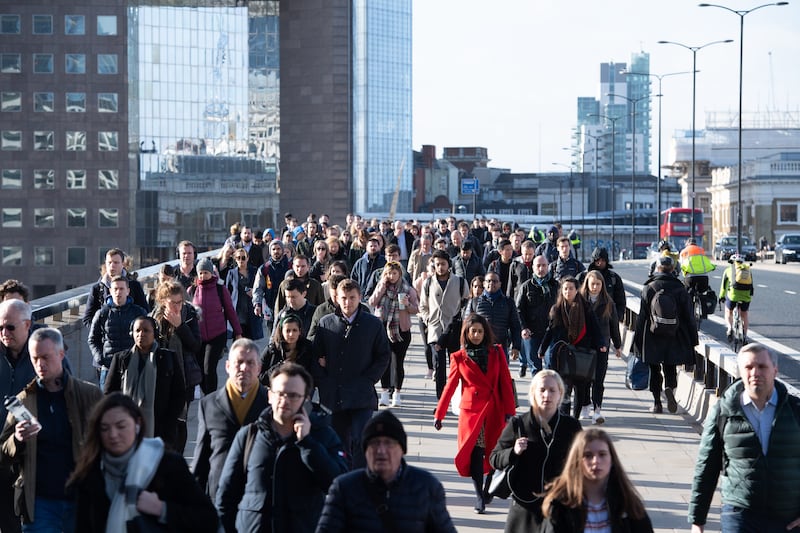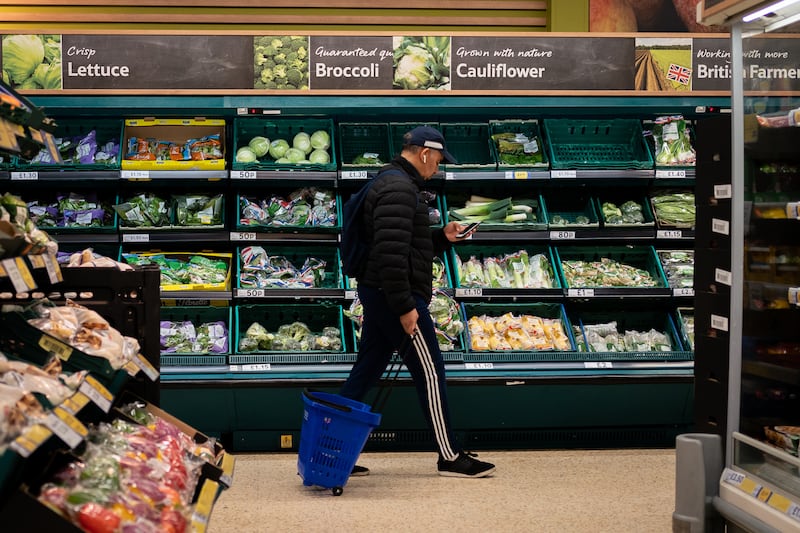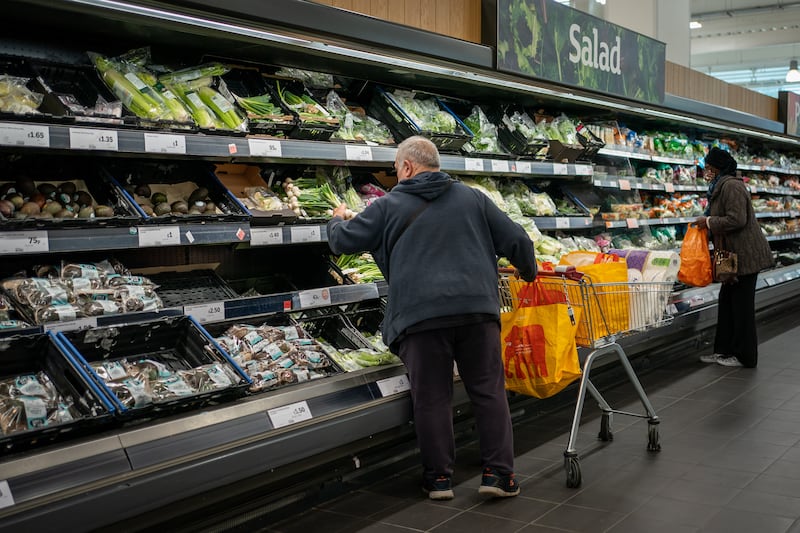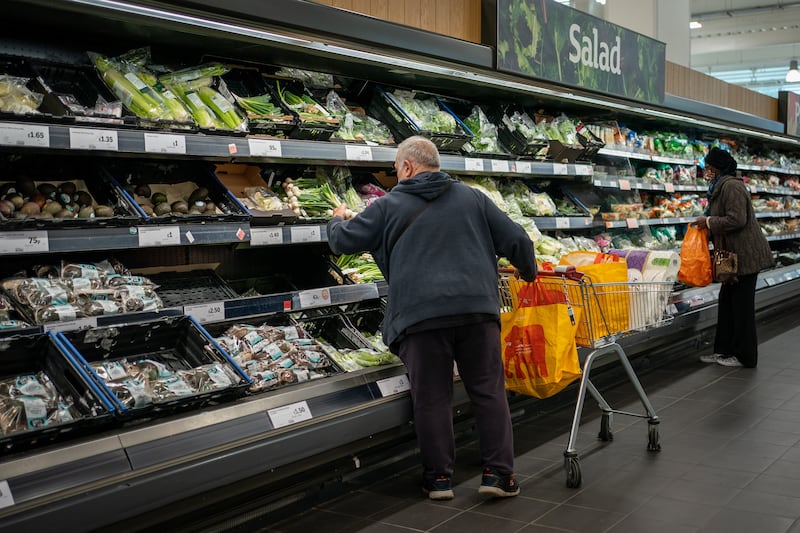Minister for Public Expenditure Paschal Donohoe has said that last year’s Budget has had little to no impact on ‘sticky inflation’ in Ireland.
Despite projections earlier this year that it would drop dramatically, inflation in Ireland and in other EU countries has remained high.
August figures indicate that prices rose by 6.3% in the year to August, up from an annual increase of 5.8% in the 12 months to July.
Consumer prices rose by 0.7% in the month between July and August.
Excluding energy and unprocessed food, the Consumer Price Index (CPI) increased by 6.4% in the 12 months to August.
This is the 23rd straight month where the annual increase in the CPI has been at least 5%, according to the Central Statistics Office (CSO).
Speaking to reporters at the Department of Finance, Mr Donohoe said many EU countries have seen the rate of inflation decrease, but not at “the speed that everybody would have wanted or expected”.
“We are seeing inflation in some parts of our economy still be higher than we would want or would have thought it would be,” he said.
“But in terms of whether public expenditure is playing a role in it, expenditure has gone up at a slower pace than inflation in Ireland over the last two years.
“So public expenditure growth has not been higher than the rate of inflation within our economy.
“So if it is having an effect on inflation levels, I think it’s going to be at a low level.
“And the very reason we had a series of one-off measures is so that we could avoid big permanent expenditure increases that might have a bigger effect on inflation within the economy.
“If you look at where we are at the moment, and the big items that were designed to help people with the cost of living were one-offs. They happened in November, December, January and February, and I think any effect that they might have had on inflation, if they did have one, is well worn out of the figures by now.
“So overall, I don’t believe it’s having a contributory effect on inflation at the moment because our rate of growth is lower than the increase of inflation.”
Anthony Dawson, statistician in the CSO’s prices division, said that prices have been rising on an annual basis since April 2021, with annual inflation of 5% or more recorded in each month since October 2021.
“The most significant rises in the year were seen in housing, water, electricity, gas and other fuels which was up 17.3% and recreation and culture, which was up by 12.9%,” he said.
There was a 51.3% rise in mortgage interest repayments, which is reflected in the housing, water, electricity, gas sector, a 57.9% rise in prices in package holidays and a 13% rise in pet-related products and services since August last year
Education (-6.3%) and transport (-2.0%) were the only divisions to show a decrease in prices compared with a year ago.
The CPI measures the change in the average level of prices paid for consumer goods and services by households in the country and by tourists in Ireland.
Around 50,000 prices are collected for a representative basket of 615 items in a fixed panel of retail and service outlets throughout the country, from roughly the second to the third week of each month.
